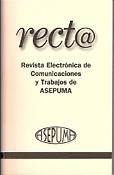Selección de indicadores basada en métodos de optimización multicriterio. Una aplicación a la estrategia de cultura y desarrollo de España
DOI:
https://doi.org/10.24310/recta.17.1.2016.19923Keywords:
Indicadores culturales, TOPSIS, Método Delphi, selección de indicadores, optimización fuzzyAbstract
The evaluation of public policies aims to assess the usefulness and goodness of public intervention. The evaluation is usually done with indicators that measure the degree of achievement of the objectives planned, and the cultural management processes carried out by both public and private agents. For an indicator system to be effective, it is necessary to establish a strategic choice that meets two requirements: it should faithfully represent all the criteria of the decision maker and the number of indicators should not be very high. However, in many practical applications the number of indicators with which we work is usually high, thus it is not very operational. Therefore, to reduce the number of indicators is necessary to rank them so that choosing the first ones guarantees greater success according to different criteria. In this paper, we use TOPSIS method to sort out to cultural indicators defined to facilitate monitoring of the Strategy of Culture and Development (AECID). We also compare these results with a previous work in which the Delphi methodology and a relative operational index (ROI) were used.
Downloads
Publication Facts
Reviewer profiles N/A
Author statements
Indexed in
-
—
- Academic society
- N/A
- Publisher
- UMA Editorial. Universidad de Málaga
Downloads
Published
How to Cite
Issue
Section
License

This work is licensed under a Creative Commons Attribution-NonCommercial 4.0 International License.









